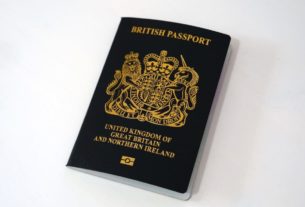For many people, estate planning and the preparation of a last will and testament is a dreaded thought and something that is rather avoided. However, it is certainly advisable to settle such affairs and this holds true in particular if you have property in Thailand.
If you do not prepare a will, the law decides how the estate is distributed. Succession in Thailand is governed by Sections 1599 ff. of the Thai Civil and Commercial Code (“CCC”). Rules related to international issues are governed by Sections 37 ff. of the Thai Act on Conflict of Laws.
Statutory heirs are entitled to inherit according to the following order (Section 1629 CCC):
■Descendants
■Parents
■Brothers and sisters of full blood
■Brothers and sisters of half blood
■Grandfathers and grandmothers
■Uncles and aunts
The surviving spouse is also a statutory heir. His/her share of the inheritance depends on how many and which type of statutory heirs there are altogether.
Thai inheritance law does not recognise the idea of a statutory share. Any heir can be fully disinherited.
If there are no living relatives and no will, the estate devolves to the state.
Why a will is recommended
It is highly recommended to have a last will and testament naming all your assets, such as property, bank accounts, vehicle, and personal items as well as naming your heirs.
If there is no will, the statutory heirs have the burden of proof that they are next of kin.
They will in practice have to hire a Thai lawyer to represent them during the court probate proceedings in Thailand and perhaps even have to travel to Thailand. This is avoidable by preparing a will.
In a will, an administrator of the estate may also be appointed, such as a lawyer in Thailand.
Thailand now has enacted laws that govern issues related to the so-called “living will”, which means your instructions as to what to do if you are seriously injured and left in a vegetative state.
Such instructions may be included in your last will and testament.
Also, funeral arrangements may be set forth in your will.
If the deceased had a Thai spouse or partner who owns common assets in his/her own name, in particular if they have been paid for by the deceased, the spouse or partner also should have a will.
Formalities of a Thai will
In Thailand, the most common type of will is required to be in writing, dated at the time of making the will, and signed by the testator before at least two witnesses of the testator’s signature (Sections 1656 CCC). It does not have to be drafted in Thai language.
The body text of the will may be printed or handwritten. In addition to this common type of will, there are certain other types with different formalities, such as a public will, which are less relevant in practice.
We strongly recommend preparing a separate Thai will for assets in Thailand in addition to the will in your home country.
This is necessary because different jurisdictions usually require different formalities for wills.
Furthermore, having a will drafted in the home country to cover assets in Thailand may be problematic and burdensome to the family as documentation may need to be translated, notarised and approved by a government body.
Conflict of law
If assets include a house and/or a leasehold right in Thailand, Thai courts will be competent for the probate and Thai law will always govern the succession.
If assets include movable property in Thailand, including shares in a Thai company, Thai courts will be competent as well, however according to Thai conflict law the law of the domicile of the deceased at the time of his death will be applied.
A Thai will should be prepared and signed on Thai territory, as in this case it is ensured that the aforementioned Thai rules regarding the form of the will apply.
Probate in Thailand
In order to obtain a probate in Thailand, probate proceedings at the Thai courts will need to be initiated by the heirs. A probate will in most cases be required to administer the estate orderly, even if the deceased has provided for a last will.
If the deceased himself named an administrator in his will, the probate court will appoint this person.
One of the heirs, but also a third party, such as a lawyer, may act as administrator. Otherwise the court will seek to appoint one of the heirs as administrator of the estate.
The administrator will be appointed by the court if none of the heirs object.
The administrator is obligated to appear personally at the court hearing in Thailand.
If heirs consent to the appointment of the administrator in writing, they will usually not be required to appear during the hearing of the probate court in Thailand.
This means that in a normal probate procedure without complications, the heirs can avoid traveling to Thailand by using a professional administrator such as a lawyer.
Inheritance of Thai property
Please note that a leasehold right regarding property in principle ends upon the demise of the lessee.
However, standard land lease agreements usually state that the leasehold right should be passed on to the heirs by way of inheritance.
This issue needs to be dealt with at the time of preparing and entering into the land lease agreement, and it is advisable to have your legal adviser check any such agreements again as part of the inheritance arrangements.
A building owned by a foreigner may be passed on to the heirs according to general rules.
If shares in a Thai company are passed on by way of inheritance, e.g. in the case of shareholding in a Thai company that holds land, it should be noted that rather complicated legal issues with regards to corporate law may arise.
A will provides for clarity here and avoids legal disputes between heirs and/or shareholders.
Inheritance Tax
It might be interesting to note that inheritance tax is not levied in Thailand.
— Fabian Doppler 2013-02-13
Fabian Doppler is a Senior Legal Advisor based in the Phuket Office of DFDL Mekong Legal & Tax Advisers. This article is intended for general guidance only. It should not be relied upon as legal advice. http://www.dfdlmekong.com; fabian.doppler@dfdlmekong.com
Source: http://www.thaivisa.com/forum/topic/618983-the-importance-of-preparing-a-will-in-thailand/


